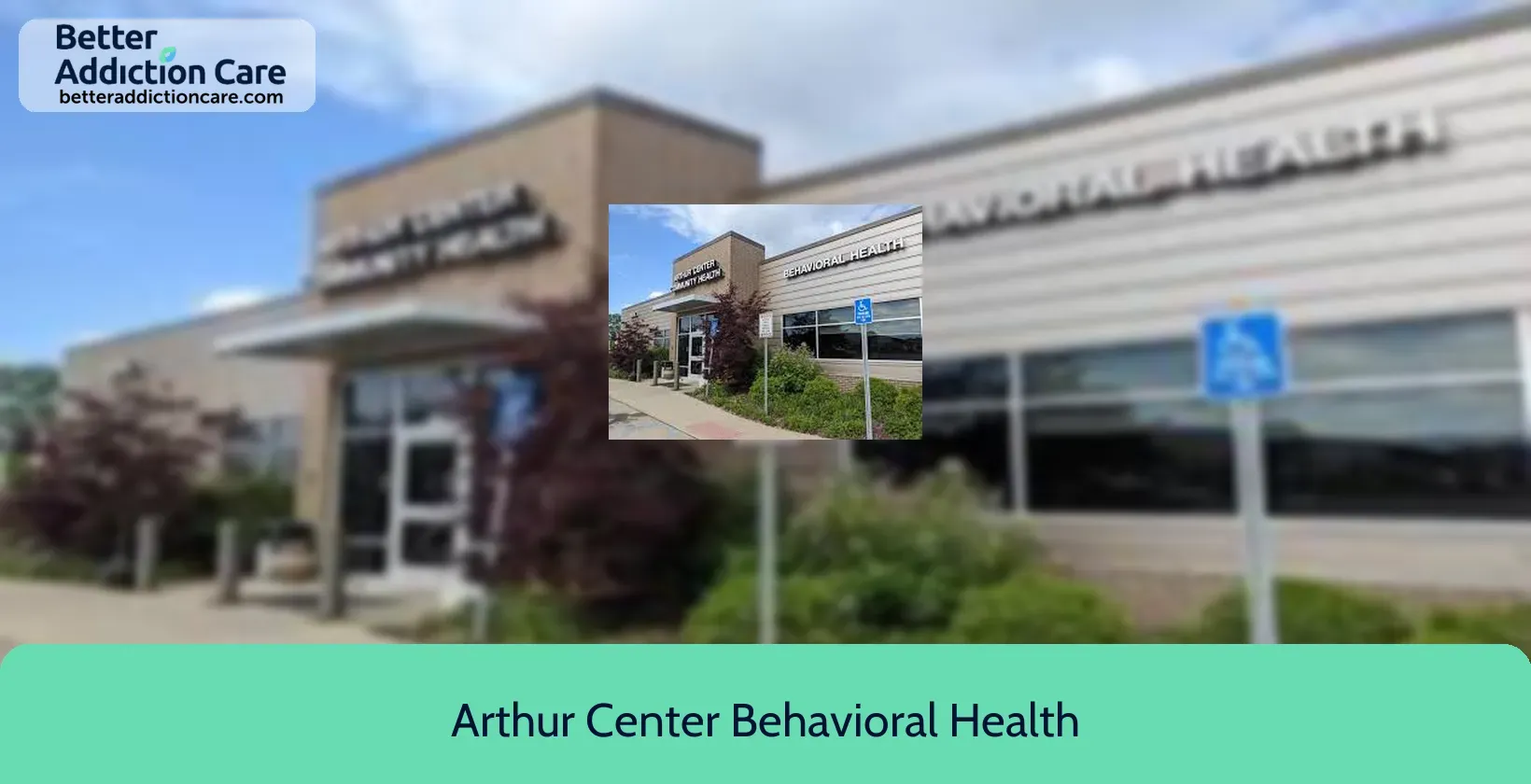Arthur Center Behavioral Health
Overview
Arthur Center Behavioral Health, a rehabilitation facility situated in Fulton, Missouri, offers a wide range of services to individuals who are grappling with mental health challenges, substance misuse, and co-occurring disorders. This facility is intended to provide assistance to individuals who are 18 years of age or older. It provides customized outpatient programs that concentrate on long-term recovery and well-being, while also addressing the intricacies of addiction and mental health.
The center provides a variety of treatment options to guarantee that each individual receives the appropriate level of care. The center offers an FDA-approved Medication-Assisted Treatment (MAT) detox program that offers medical supervision and support to safely manage withdrawal symptoms during the early phases of recovery. The facility's robust aftercare program guarantees that individuals continue to receive guidance and support following the completion of their initial treatment, thereby facilitating their reintegration into daily life and sustained recovery.
In addition to conventional treatment programs, they provide a Crisis Intervention Program that is specifically designed to offer immediate assistance to individuals with acute distress. The center also operates an emergency services hotline to guarantee that individuals who are experiencing a mental health or addiction-related crisis can obtain assistance in a safe and timely manner. The therapeutic services offered at Arthur Center Behavioral Health are Individual, group, family, and couples counseling are among the therapies that guarantee that all aspects of a client's personal and relational well-being are addressed. Additionally, the center provides Cognitive Behavioral Therapy (CBT) to address dysfunctional thought patterns, Eye Movement Desensitization and Reprocessing (EMDR) therapy for trauma, and anger management programs. Relapse prevention strategies are integrated throughout the treatment process to assist individuals in developing resilience and preventing setbacks, and a 12-Step Program is accessible to those who benefit from its structured recovery framework.
The center is accredited by the National Committee for Quality Assurance (NCQA) and the Commission on Accreditation of Rehabilitation Facilities (CARF). The center's dedication to upholding the most stringent ethical treatment practices, safety protocols, and care standards is evidenced by these accreditations. Arthur Center Behavioral Health offers a supportive and effective environment for individuals who are attempting to overcome addiction and mental health challenges through its comprehensive programs, crisis intervention services, and diverse collection of therapeutic options.
Arthur Center Behavioral Health at a Glance
Payment Options
- Cash or self-payment
- Medicaid
- Medicare
- State-financed health insurance plan other than Medicaid
- Private health insurance
Assessments
- Screening for tobacco use
- Comprehensive mental health assessment
- Comprehensive substance use assessment
- Outreach to persons in the community
- Screening for mental disorders
Age Groups
- Young adults
- Adults
- Seniors
Ancillary Services
- Intensive case management
- Case management service
- Court-ordered outpatient treatment
- Diet and exercise counseling
- Family psychoeducation
Highlights About Arthur Center Behavioral Health
7.59/10
With an overall rating of 7.59/10, this facility has following balanced range of services. Alcohol Rehabilitation: 8.00/10, Drug Rehab and Detox: 7.85/10, Insurance and Payments: 6.93/10, Treatment Options: 7.58/10.-
Alcohol Rehabilitation 8.00
-
Drug Rehab and Detox 7.85
-
Treatment Options 7.58
-
Insurance and Payments 6.93
Accreditations
State mental health department:
State mental health department accreditation refers to the process of evaluating and certifying the quality and standards of a state's mental health department, ensuring that it provides high-quality services and meets specific criteria for mental health care. The accreditation process is performed by a third-party organization and helps to improve the overall care and treatment of individuals with mental health conditions.
Commission on Accreditation of Rehabilitation Facilities (CARF):

Established in 1966, the non-profit organization known as the Commission on Accreditation of Rehabilitation Facilities (CARF) has a dedicated focus on accrediting rehabilitation organizations. CARF's primary mission is to assist service providers, particularly rehabilitation facilities, in upholding and promoting the highest standards of care.
Federally Qualified Health Center:
Federally Qualified Health Center (FQHC) accreditation is a process of evaluation and recognition by the federal government for community health centers that provide comprehensive and accessible healthcare services to underserved populations. FQHC accreditation is essential for centers to receive federal funding and to ensure that they meet standards for quality, patient-centered care.
Treatment At Arthur Center Behavioral Health
Treatment Conditions
- Mental health treatment
- Alcoholism
- Substance use treatment
- Co-occurring Disorders
Care Levels
- Luxury Treatment
- Outpatient methadone/buprenorphine or naltrexone treatment
- Regular outpatient treatment
- Outpatient
- Aftercare
Treatment Modalities
- Individual psychotherapy
- Couples/family therapy
- Cognitive behavioral therapy
- Dialectical behavior therapy
- Integrated Mental and Substance Use Disorder treatment
Ancillary Services
Languages
- Sign language services for the deaf and hard of hearing
- Other languages (excluding Spanish)
- Arabic
Additional Services
- Pharmacotherapies administered during treatment
- Housing services
- Drug or alcohol urine screening
Pharmacotherapies
- Chlorpromazine
- Fluphenazine
- Haloperidol
- Loxapine
- Aripiprazole
Special Programs
- Clients with co-occurring mental and substance use disorders
- Criminal justice (other than DUI/DWI)/Forensic clients
- Children/adolescents with serious emotional disturbance (SED)
- Persons 18 and older with serious mental illness (SMI)
- Clients who have experienced trauma
Common Questions About Arthur Center Behavioral Health
Contact Information
Read our Most Recent Article About Drug Addiction
DISCLAIMER: The facility name, logo and brand are the property and registered trademarks of Arthur Center Behavioral Health, and are being used for identification and informational purposes only. Use of these names, logos and brands shall not imply endorsement. BetterAddictionCare.com is not affiliated with or sponsored by Arthur Center Behavioral Health.









